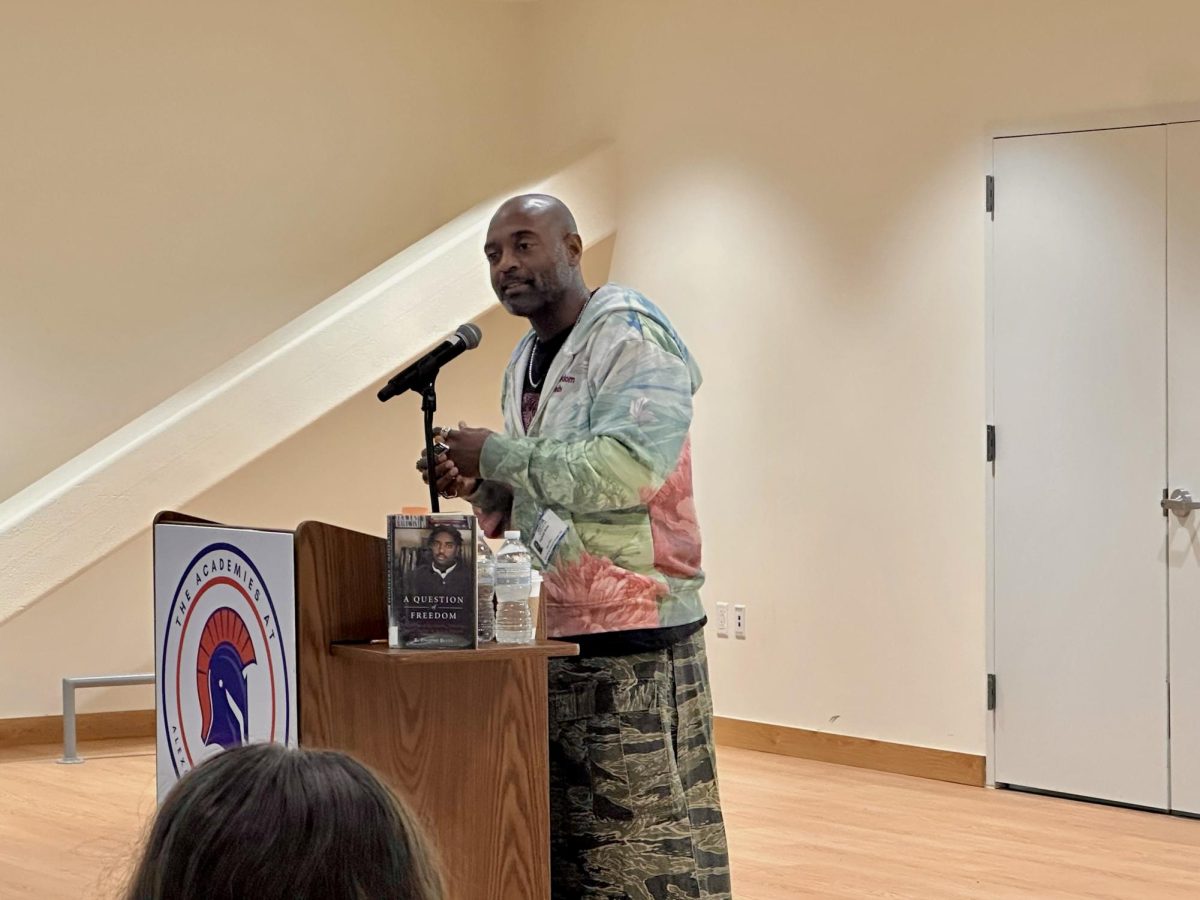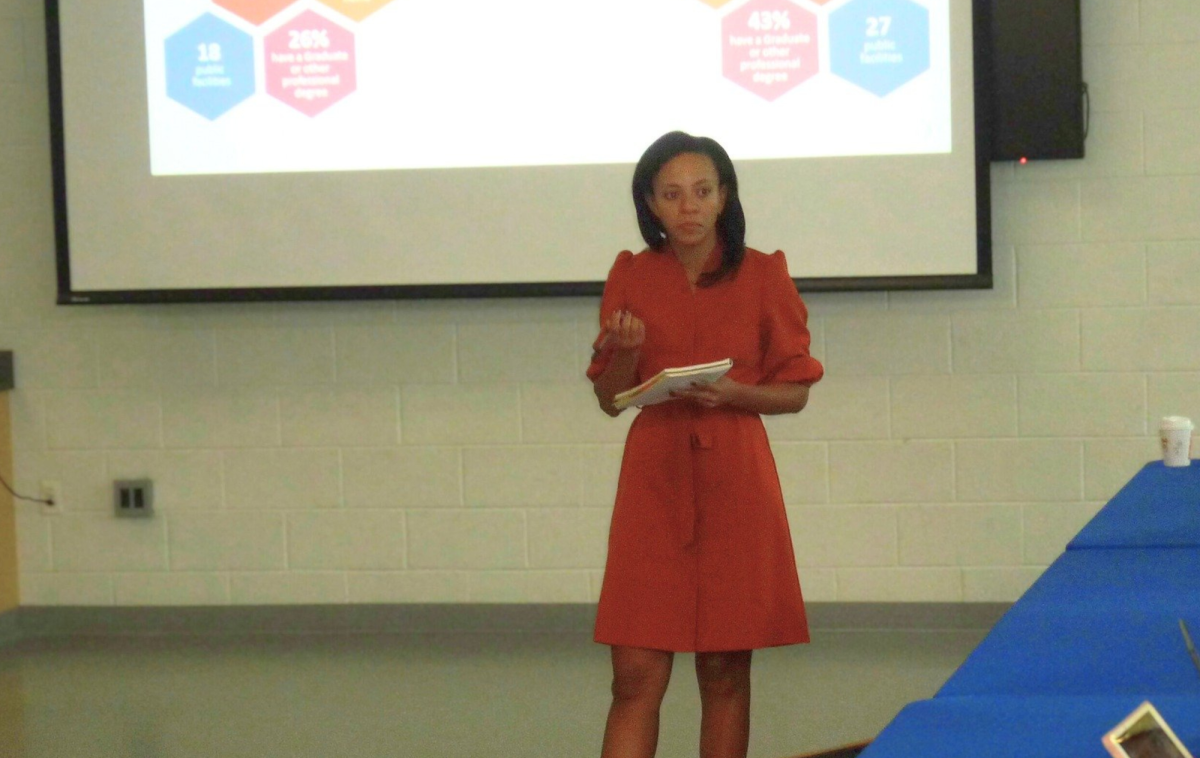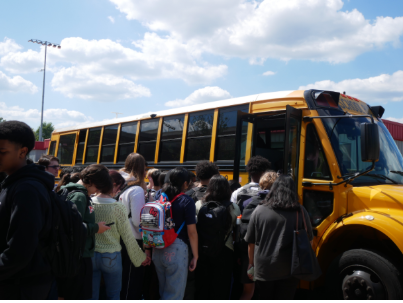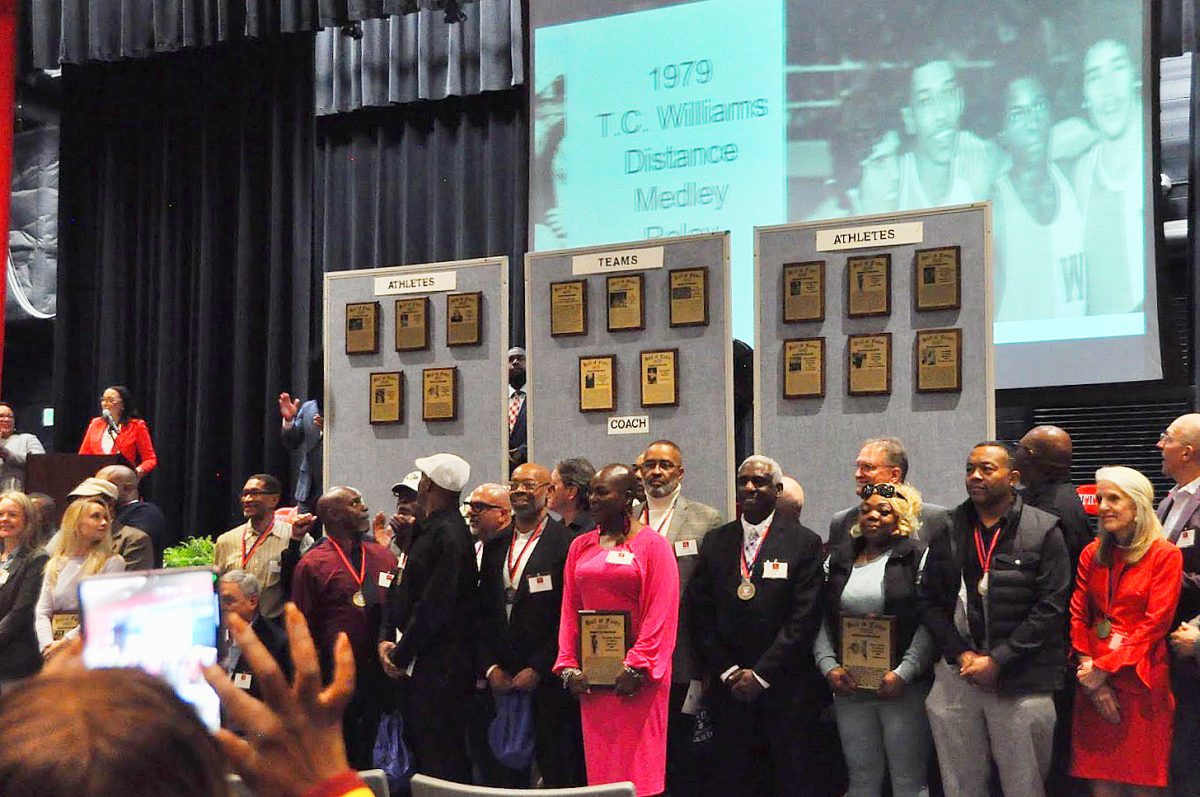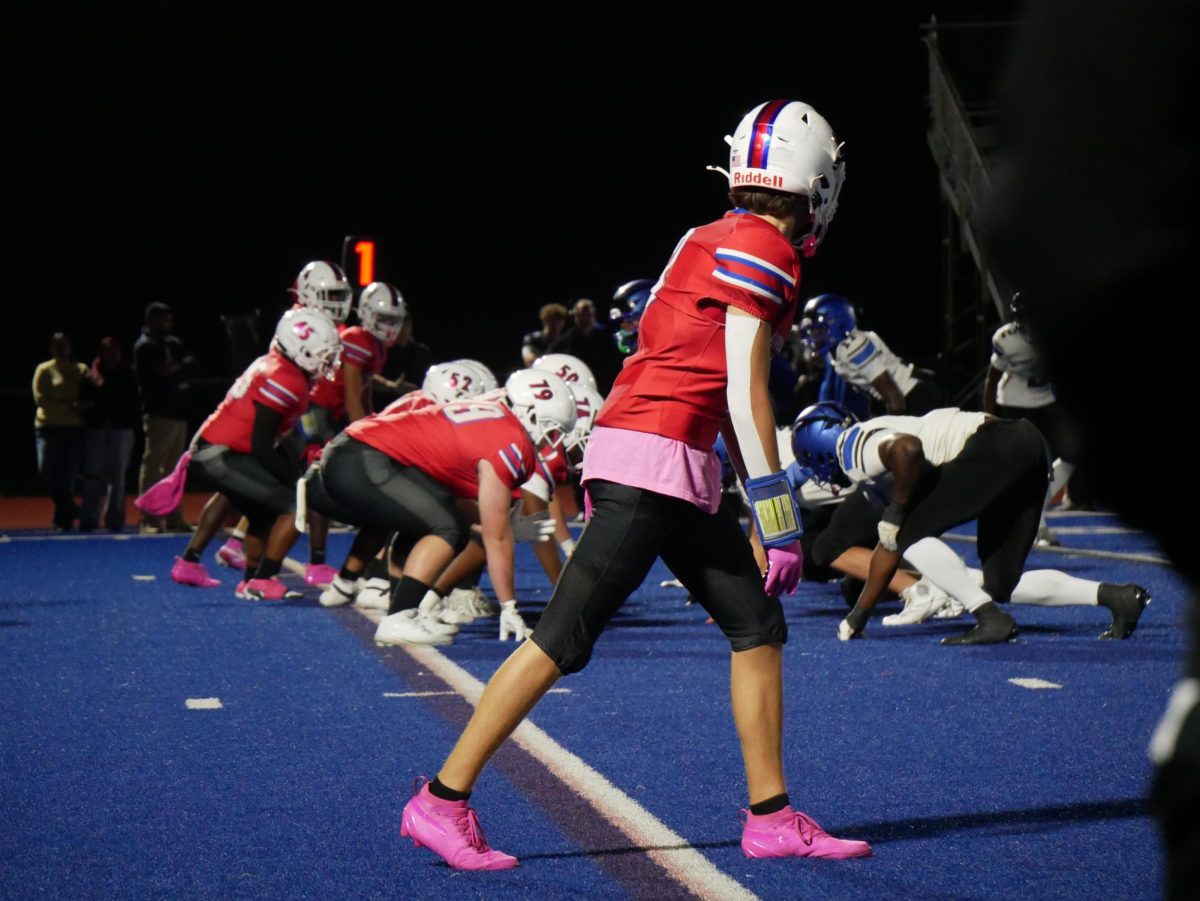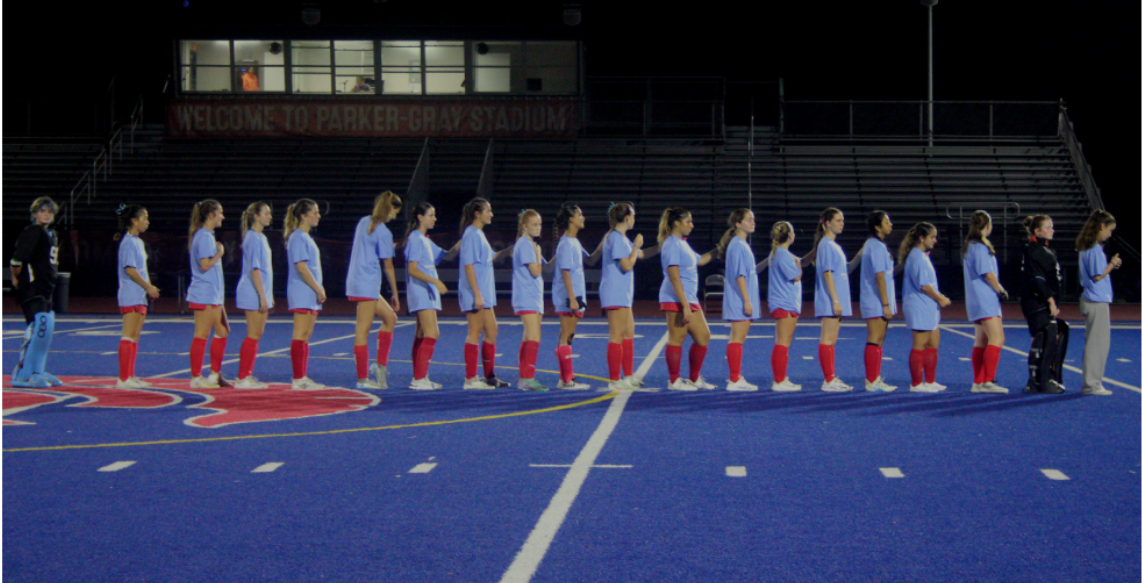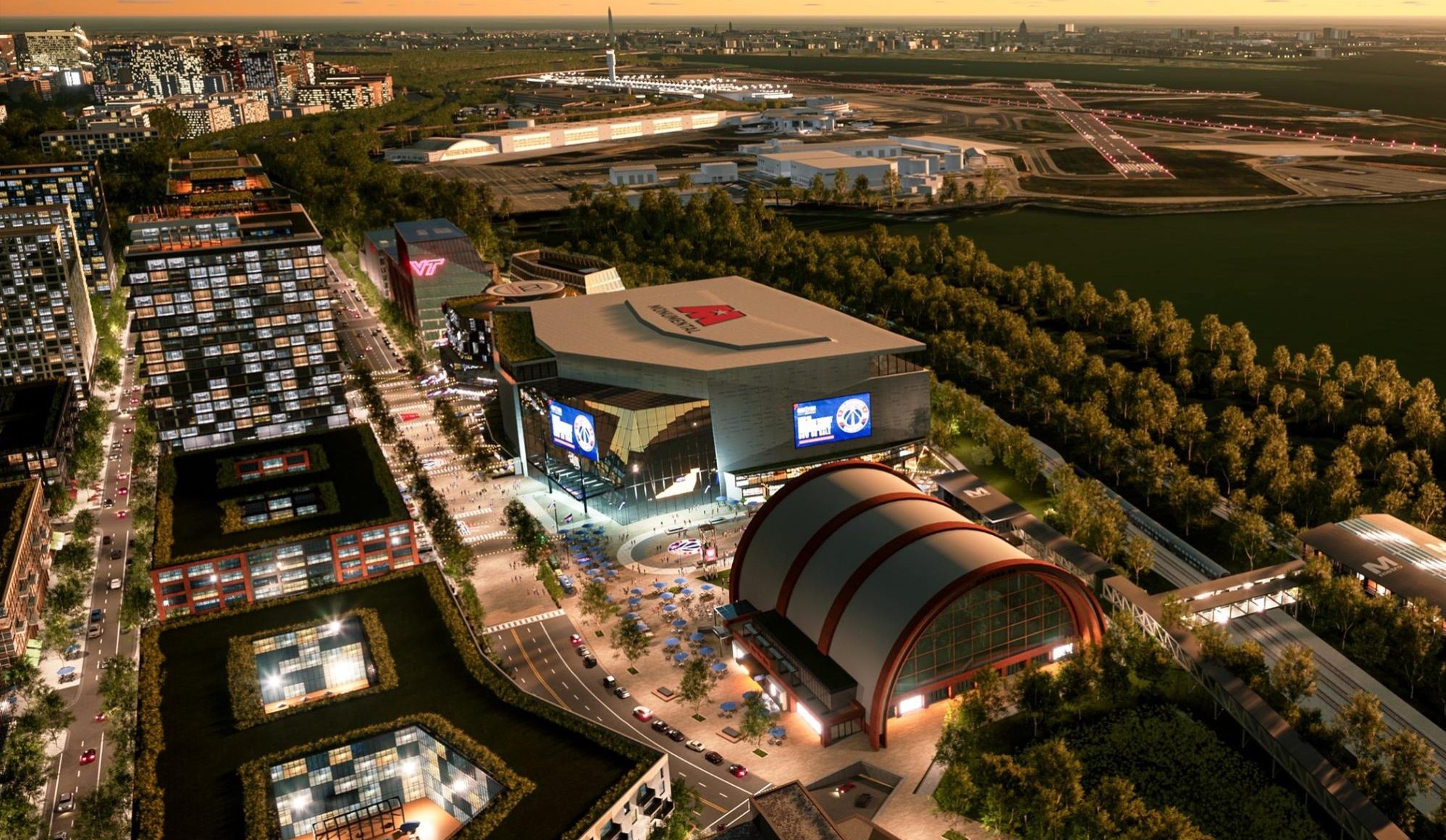The proposed $2.2 billion future home of the Washington Wizards and Washington Capitals would be an economic boon for Alexandria and help expand the commercial real estate tax base, according to a recent presentation from the Alexandria Economic Development Partnership (AEDP) at a City Council meeting. But many residents aren’t buying the rosy projections, castigating the proposal as a tax break for millionaires.
According to an analysis presented by City Finance Director Kendel Taylor and Stephanie Landrum of the AEDP, the site is projected to generate new revenue of $33.7 million in 2030, its first year, after accounting for bond payments. The project would be in “phase one” at this time, which would include the arena, a concert hall, parking sites and more.
“One of the other things we looked at was making sure that it didn’t take a decade for us to start seeing revenue,” said Taylor. “We are positive from the beginning.”
While much of Taylor and Landrum’s analysis focused on how $33.7 million could impact Alexandria, an estimated $25.3 million would be spent on costs associated with the development, such as traffic calming efforts and park clean-ups. This leaves $8.4 million of projected revenue for City programs and services—less than 1% of Alexandria’s FY2024 budget.
Over time, though, this number is expected to increase. By 2037, the development site would be in its third phase and is projected to contribute $47.3 million to the City, with an upgraded retail center providing much of that revenue.
“As that gap widens,” said Councilwoman Sarah Bagley at the meeting, “what that means in [terms of] teacher pay and building structures and investment is significant.”
Taylor later spoke on how the arena could widen Alexandria’s commercial real estate tax base. Currently, the residential tax base makes up 82% of the city’s revenue—meaning the commercial tax base comprises just 18%. This is a stark difference from 2008, when it was over 30%.
“If we don’t do something different, this is the trajectory that we have,” Taylor said. “When we talk about doing something from a catalytic perspective … this is what we’re talking about.”
The analysis also clarified a claim that the arena would provide Alexandria with 30,000 jobs–a statistic many residents questioned. According to Landrum, there are currently 12,330 permanent and 2,380 construction jobs in the Potomac Yards district, but this would increase to 29,555 permanent and 17,645 construction jobs with the arena and its accompanying development.
Even with the possible economic improvements, some Alexandria residents say the arena would disrupt the city’s quality of life. Meredith Lair, whose neighborhood Lynhaven borders the proposed site, spoke at a public hearing on February 24 about her community’s feelings on the plan.
“Many of us are terrified of the financial and quality of life problems that will arrive if this boondoggle comes to pass,” she said. “Even among ardent supporters of the arena plan, I never hear confidence that neighborhoods near the site will be preserved … Please stop threatening my neighborhood. Recognize a fairy tale when you’re told one.”
Robin Baldwin, a resident of the Parker-Gray district, worries that the promised jobs might not be as impactful for Alexandria as they seem because they are part-time positions. She also cast doubts on whether Alexandrians would be able to secure these jobs.
“The project labor agreement means the unions bring in the workers from out of town,” Baldwin said. “I’m not against unions, but I want you to know they’re not going to hire local people. They may tell you, but they’re going to bring in people that belong to the union that need work.”
Other residents worry that a $1.35 billion public subsidy of the development site — the largest of its kind in U.S. history — will bring along financial problems for the city.
“I would love to see sensible development in Potomac Yards, but this ill-advised proposal is fiscally irresponsible and it is not the solution to increase the commercial tax base,” Rosemont resident Lee Talbot said. “It will ruin the quality of life in Alexandria and endanger our financial position”
According to Moody’s Investor Service, one of Wall Street’s three main credit rating agencies, one factor to earn an AAA municipal bond rating is the availability of annual revenue that covers twice the debt service each year. Using Moody’s methodology, it’s possible that Alexandria’s credit rating could be affected if the arena generates significantly less revenue than what’s projected.
“This is a real risk because the inaccessibility of Potomac Yards will negatively impact attendance and visitors,” Talbot said. “You’re all basing your support on an ‘if you build it, they will come’ hypothesis. That’s too risky.”
At the legislative meeting, City Manager Jim Parajon defended the reliability of the projections.
“[There has been] a lot of serious discussion in the community about the validity of these numbers,” he said. “We feel that the information you’re going to have tonight does represent information that has been developed through experts in this field, as well as verified by our financial advisors.”
Councilman Canek Aguirre later added his take on the matter.
“The city has an AAA bond rating for a reason,” he said. “We look at the numbers very carefully; we have our experts that are looking at it; we get assistance from outside folks to double, triple, quadruple check our numbers.”
The latest analysis from a third-party? A study conducted by D.C. real estate consulting firm HR&A Advisors that was released by the AEDP on February 16. Typically, the AEDP does not share their analyses, but this case was an exception.
“We heard very early on that the community and many stakeholders wanted more information,” said Landrum. “So we published the complete report.”
Still, some residents aren’t pleased with it—especially sections containing redactions Landrum says are “proprietary information.”
“How on God’s green earth are any Monumental projection numbers entitled to be confidential, restricted or privileged?,” said John Rebstock at the public hearing. “It makes absolutely no sense.”
“That analysis is short on analysis; it’s long on data,” said David Talmage, a resident of Del Ray. “It really doesn’t analyze anything.”
A statement from Alexandria’s Stop The Arena Coalition also pushed back and called the projections, which were shared at the meeting, “misleading and one-sided.”
“[The] revenues are highly speculative, dependent on future projected new businesses, like two hotels at the Entertainment District site, a full slate of concerts and other entertainment events, and many projected new restaurants and other local service establishments,” the statement said.
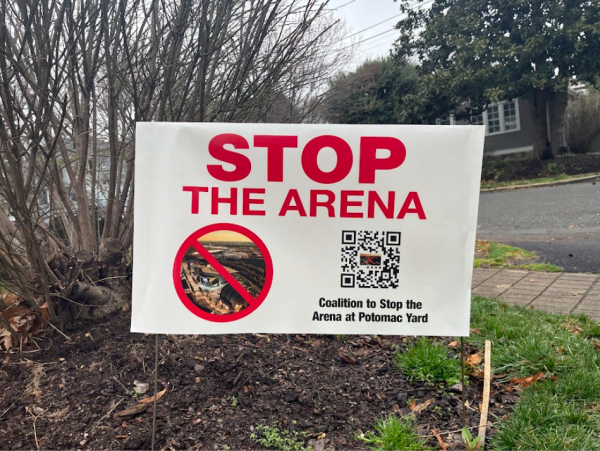
The statement also provided comment from Jeff Ferry, Chief Economist at the Coalition for a Prosperous America and an Alexandria resident.
“The Alexandria arena project is very likely to be a money-loser for the city and the state,” Ferry said. “Fifty years of economic studies show an overwhelming consensus that stadium projects, when backed by the public sector, fail to deliver economic benefits for the local community.”
Although several people at the legislative meeting held signs in support of the proposal, Del Ray resident Bradley Beychock was the only person to speak in the arena’s favor at the public hearing.
“I initially was a skeptic of this project,” Beychock said. “I had many questions like the ones you’ve heard from our citizens today. But once looking at the facts and benefits for the community, I became a supporter.”
Now working on the project’s community engagement team, Beychock said that the development’s assurance of including affordable housing is what sold the deal for him.
“The issues that I care about can be addressed by this economic development–namely affordable housing,” he said. “There’s already been 500 new units in Alexandria committed by the developer … 500 is not an insignificant number.”
As the arena proposal develops further, Parajon says that he, Landrum and Taylor will continue providing “regular updates” to the City Council.
As of now, the plan is held up in the Virginia General Assembly, which needs to create a statewide authority that would own the property and lease it to Monumental Sports & Entertainment, whose CEO Ted Leonsis owns the teams.
Although the House’s proposed budget does contain this funding, which the proposal requires to come to fruition, the Senate’s version does not. Leaders from both chambers are now headed to a secret closed-door conference committee to reconcile their differences, and if they agree to finance the stadium authority, then the Alexandria City Council will have final say on the development.
“Anything we can get out of Richmond to discuss locally is beneficial to the City,” Councilman John Chapman said at the public hearing. “I would rather have our discussion and the future of the arena come down to a vote here in this building.”



